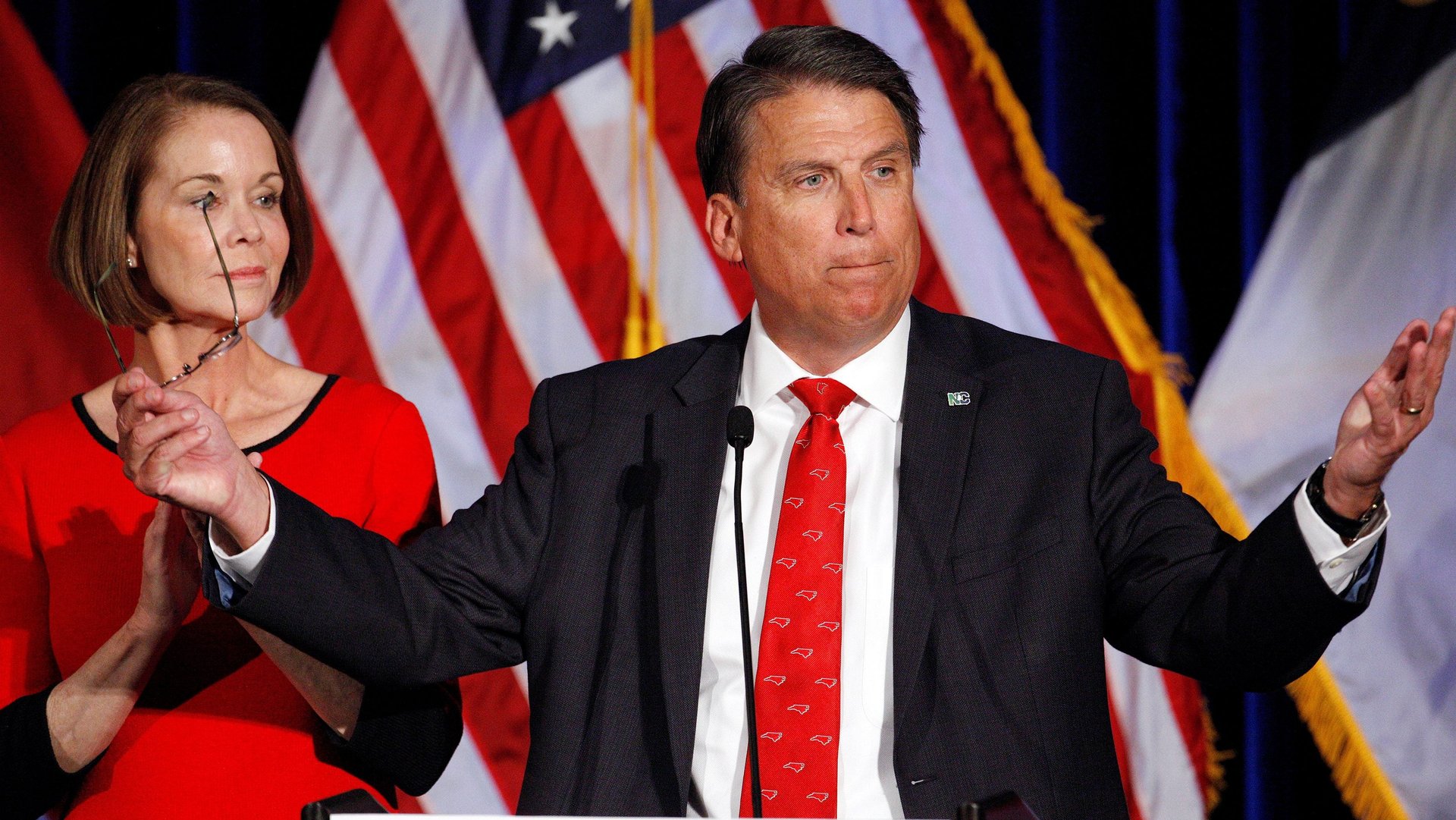North Carolina, after governorship fight and transgender bill, isn’t a full democracy, professor says
After a year of political turmoil, including high profile fights over transgender bathroom use, LGBT protections and its governor’s powers, North Carolina has been called out as not being a fully functioning democracy, according to a political scientist at the University of North Carolina.


After a year of political turmoil, including high profile fights over transgender bathroom use, LGBT protections and its governor’s powers, North Carolina has been called out as not being a fully functioning democracy, according to a political scientist at the University of North Carolina.
In an op-ed Dec. 22 in the Raleigh News and Observer—known for its liberal views—Andrew Reynolds, a professor at UNC in Chapel Hill, wrote that according to an electoral integrity index put together by a group of scholars including Reynolds, the state ranks not much higher than Cuba or Sierra Leone. The index ranks governments based on factors such as voter registration and the integrity of district boundaries.
“If it were a nation state, North Carolina would rank right in the middle of the global league table—a deeply flawed, partly free democracy that is only slightly ahead of the failed democracies that constitute much of the developing world,” wrote Reynolds, an associate professor of political science.
North Carolina, however, is only 39th on the list of states and Washington DC when ranked from best to worst. Thirteen other states have rankings as bad or worse, including Florida, Alabama, Ohio and Michigan.
Reynolds, who was born in the UK and studied in South Africa and San Diego, California, didn’t say in his editorial why he singled out North Carolina, other than to call it “my state.” He did criticize the state’s House Bill 2, which forces transgender people to use restrooms in public buildings according to the sex assigned to them on their birth certificate and eliminates protections for the LGBT community introduced by the state’s cities. The law has led several companies to cancel their investments in the state and sports leagues have called off tournament games that had been scheduled. The state failed to repeal the (paywall) law on Dec. 21 when a bipartisan agreement fell apart. ”Democracies do not limit their citizens’ rights on the basis of their born identities,” Reynolds wrote.
Reynolds also cited the Republican effort to strip the governorship of powers after GOP incumbent Pat McCrory lost to Democratic challenger Roy Cooper in the recent election. The “government in North Carolina has become arbitrary and detached from popular will,” he wrote. “When a wounded legislative leadership, and a lame-duck executive, force through draconian changes with no time for robust review and debate it leaves Carolina no better than the authoritarian regimes we look down upon.”
Reynolds and his colleagues at the Electoral Integrity Project, which is based out of Harvard and Sydney University, have assessed 213 elections in 153 countries to create an index that ranks them according to 49 different factors such as whether votes are counted fairly and whether newspaper coverage is balanced. The assessment of all the factors is based on interviews with experts, and scored on a 100-point scale.
They used the system to rank states in the 2016 US election, asking 726 political scientists based in universities in every state. On average, US states scored 64 points, and the country as a whole garnered 62 points in 2015. The highest-scoring countries in 2015 included Denmark (86), Finland (86), and Norway (83).
Here are the lowest-scoring states, along with similarly scoring countries in the past several years:
Here are the highest-scoring US states, along with countries in the same range: